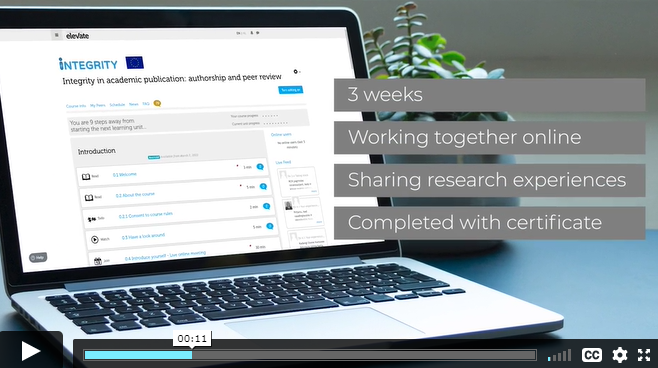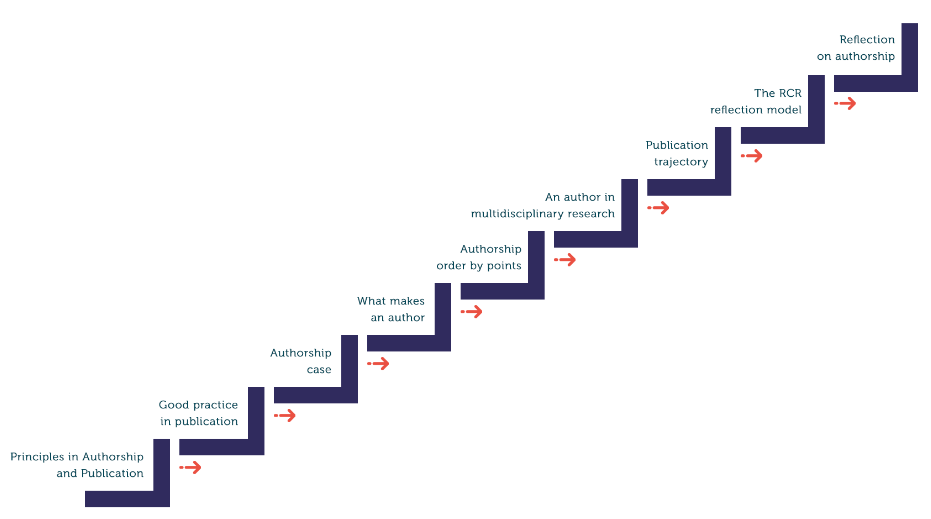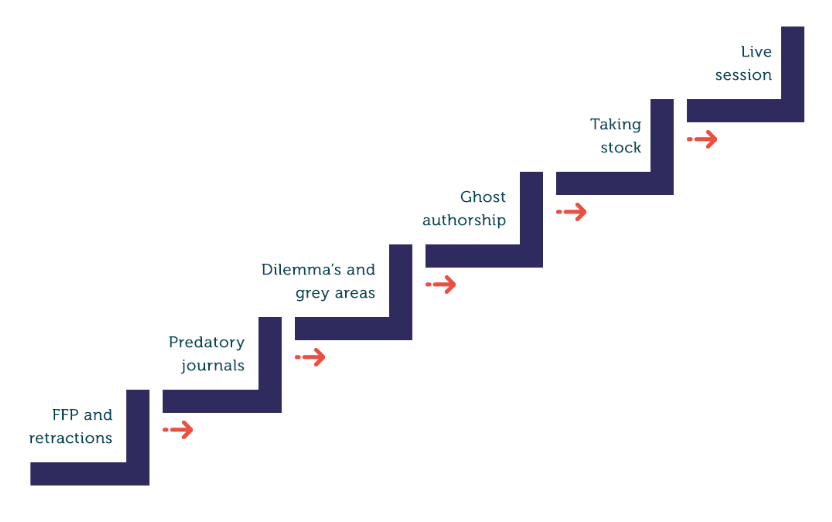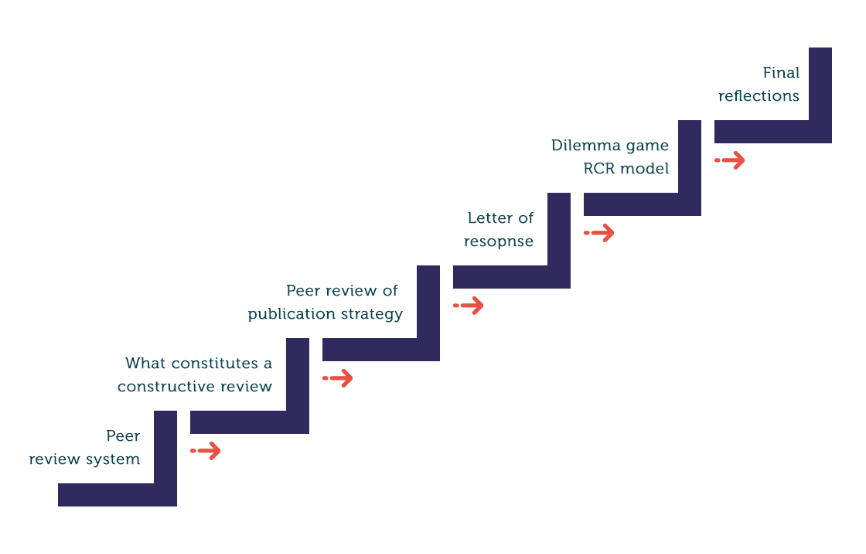SPOC: Integrity in academic publication: authorship and peer review
SPOC: Integrity in academic publication: authorship and peer review
What is this about?
This SPOC (small private online course) is about research integrity. The aim of the course is to stimulate you to become aware of relevant issues in your academic publishing practice and ways to approach them.
Together with an international group of PhD’s, you will engage in meaningful discussions and develop insights that can help you on your route to becoming a responsible researcher. Before we discuss in unit 2 issues that you may come across when you are ready to publish a paper, in unit 1 we will first discuss how to tackle authorship issues in your research project. Unit 3 offers practical assignments in which we will further explore what it takes to do a scrupulous and honest review.
Some important characteristics of this course:
- You will closely relate to your own experiences in this course. Therefore, there will be multiple opportunities to share your experiences and perspectives.
- The cases that are presented often do not have an immediate right or wrong answer: these are examples of ‘grey areas’ that require reflection.
- This course is structured around the process of publishing an academic paper and has a central focus on authorship and peer review. Topics discussed are: making a publication plan, determining authorship order, recognising predatory journals and criteria to use while reviewing the work of others. In each phase of the process, dilemmas may arise that have an integrity component and require reflection.

Practical Tips
This course is available under request. If you are interested please send an email to: integrity.rcr@gmail.com
The Teacher's guide for all INTEGRITY SPOCs is accessible here: Teacher's Guide SPOCAuthorship
In this learning unit, we will thus focus on integrity aspects of academic authorship. We will introduce the ALLEA code of conduct as a starting point to explore what being an author of a published paper entails. For most PhD candidates who will compose a thesis out of published articles, co-authorship can be a real and challenging issue to deal with. Sometimes it is already decided beforehand who will be author of articles to be published in a specified journal, but it may also still be open for discussion. We aim to stimulate you to take initiative in authorship discussions and devise a strategy for dealing with possible dilemmas that could arise. In the image you can find the structure of learning unit 1.
Academic publishing
In this learning unit, we will look at some questionable publication practices that you may come across in your academic career. First, we will offer a definition of FFP and introduce you to a website where retracted articles, and also corrections and expressions of concern, can be found: retractionwatch.com. In the image below you can find the structure of learning unit 2.
Reviewing
In this learning unit we focus on peer review, which is another important aspect of academic publishing. You may have experience with being reviewed as a researcher, or you may even have been asked to be a reviewer of a manuscript in your research domain. If not, you still will have some experiences with peer review from high school or your undergraduate studies. In the image below you can find the structure of learning unit 3.
Remarks
There are some rules for the course:
- You will be invited to use your own cases and experiences of your own research practice. However, you should never use any names of people involved, but describe situations in a more abstract manner.
- All experiences and cases that will be shared in the context of this course need to remain confidential, which means that we don’t discuss these issues with others outside the course, and that we create a safe environment in the course where everyone feels free to discuss any issues that you think are relevant.
- Issues of integrity are often related to personal emotions and character traits of people. We respect each other’s contributions and show a positive attitude.




